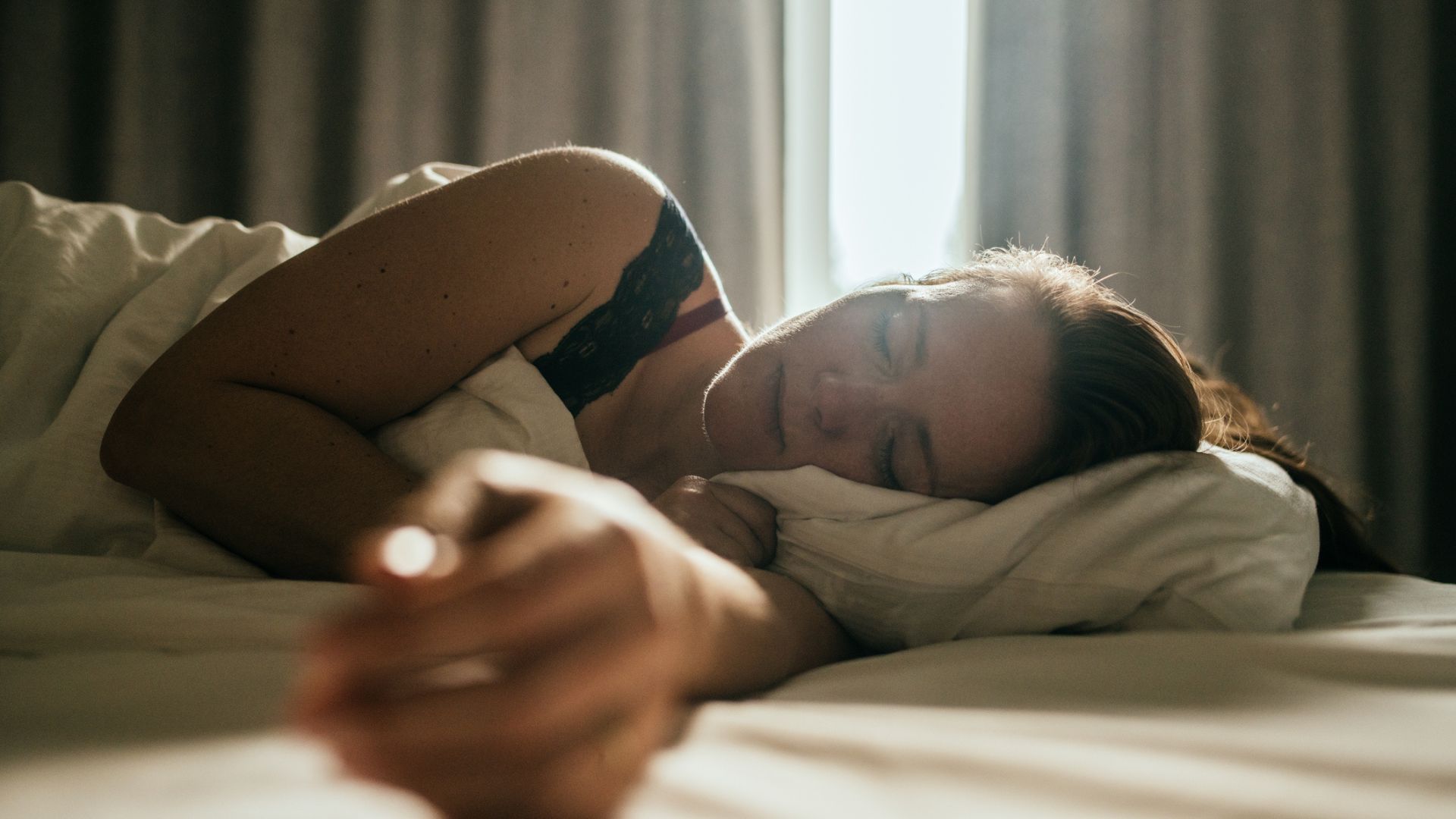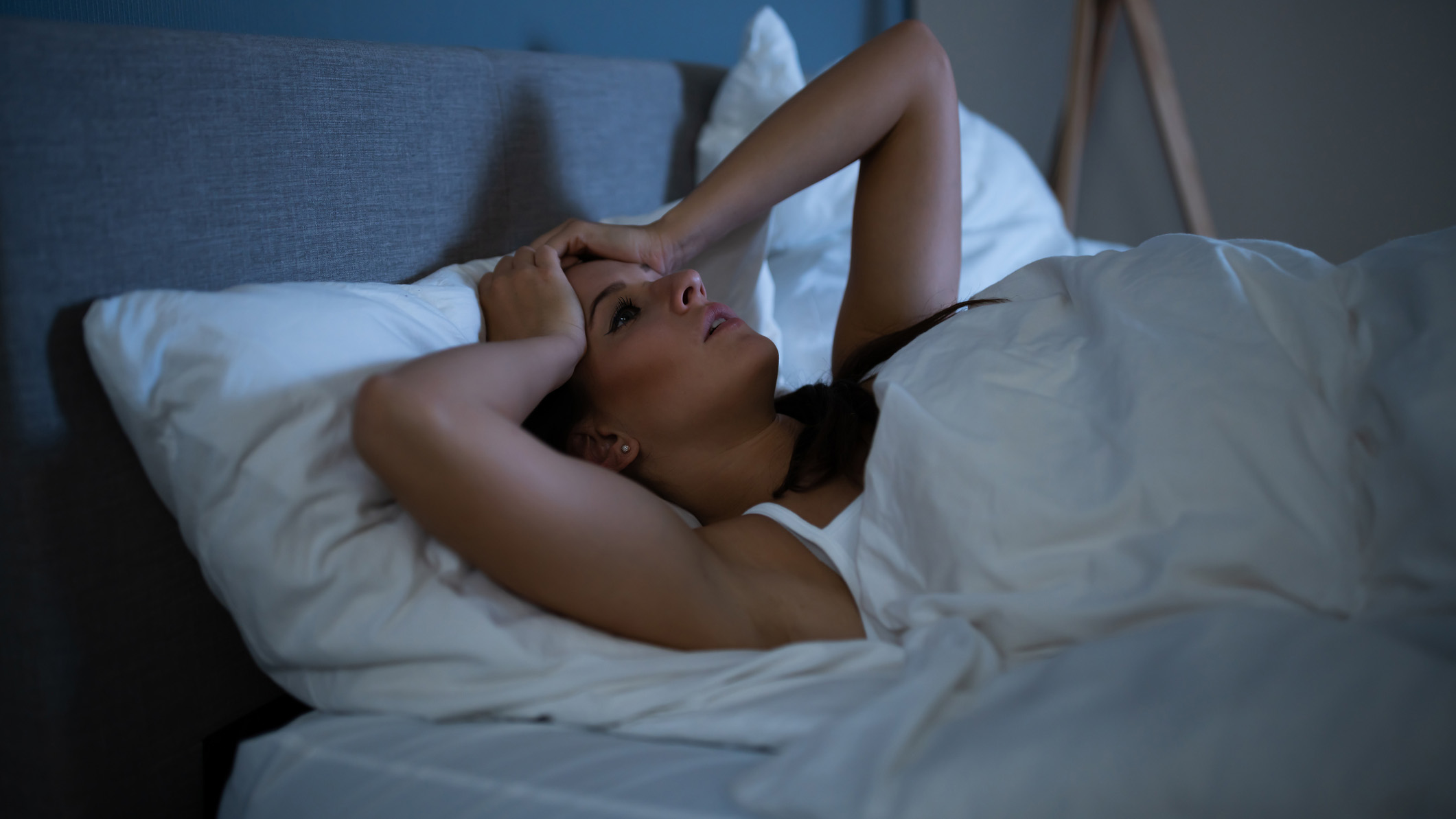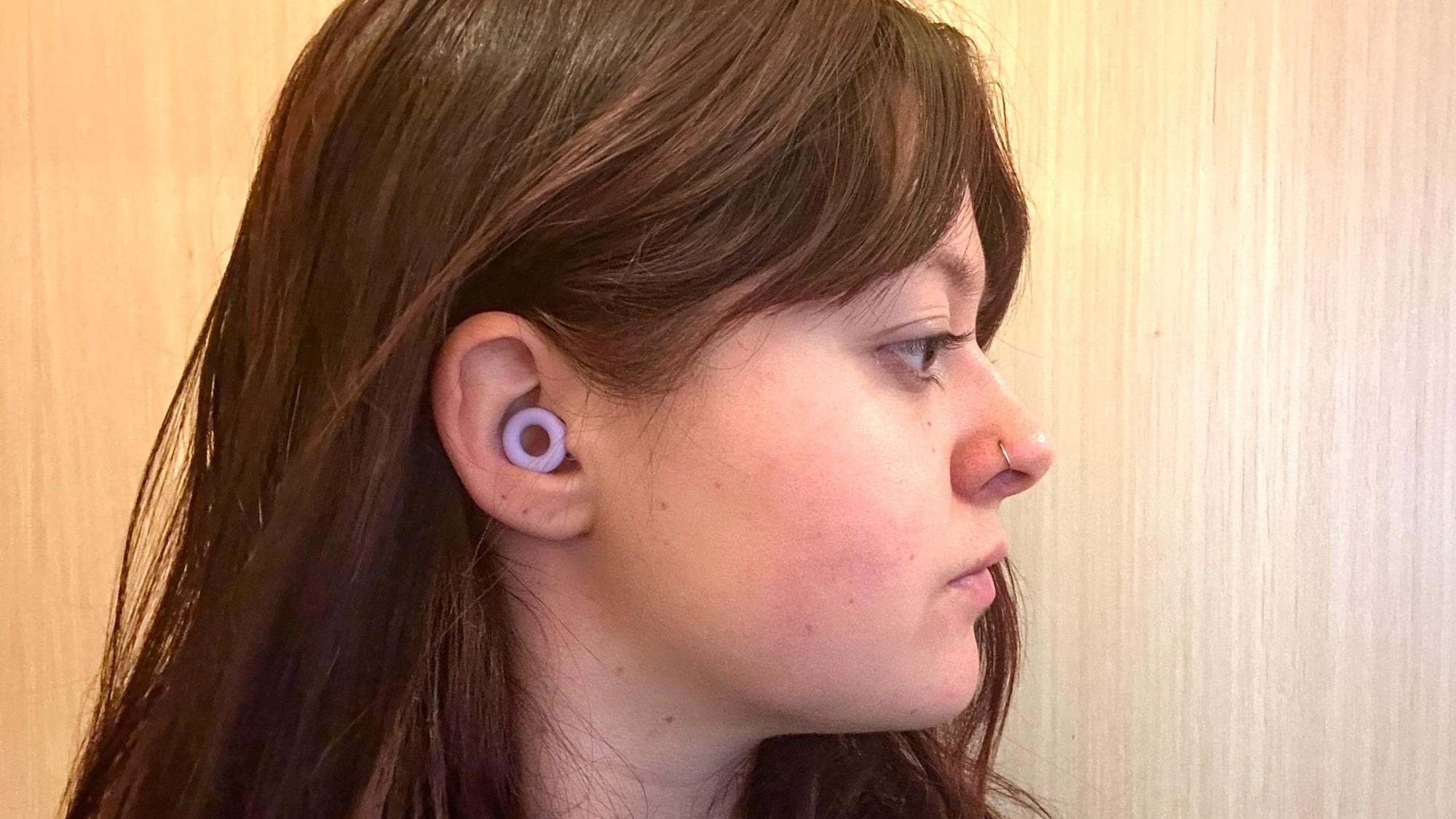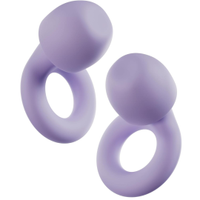I was waking up every night until this quick fix helped me sleep through
Blocking out noise can be the key to preventing waking up at night

There’s nothing worse than waking up in the night and not being able to get back to sleep. Staring at the ceiling while waiting to drift off again can be frustrating and stressful. But there are ways to tackle the problem.
While it is normal to wake up at night, if it takes you a long time to fall back asleep, your sleep quality might suffer. Recently, I've been struggling with waking up frequently during the night and, once I'm awake, I find it impossible to calm my mind enough to fall back asleep. But one obvious solution has stopped me from waking up and helped me sleep through the night.
Here, I’ll be exploring why we wake up at night, before sharing exactly what has helped me combat my nighttime wakefulness. I’ll also offer my other top tips that tackle the most common reasons for interrupted sleep.
Why do we wake up at night?
Most people wake up at night because it’s part of our natural sleep cycle. At the end of every sleep cycle, which is roughly around 90 minutes, we often briefly wake up before falling back asleep again. However, it’s usually for such a short period of time that you won’t remember it.
Even if you do wake up during the night and remember feeling fully awake, if you fell back asleep quickly afterwards it’s not a cause for concern, and it’s unlikely to impact your overall sleep quality.

However, if you wake up frequently and it takes you a long time to fall back asleep, this can impact your quality of sleep and can lead to daytime fatigue and sleep deprivation. I have observed that if I wake up in the night for long periods of time, one of the main causes is ambient noise. This refers to any external background sounds that you don’t have control over, and it can range from street noise to a buzzing fridge in the kitchen.
I found that during these brief wakefulness periods at the end of my sleep cycles, I was being drawn out of my sleepy state by tuning into these ambient noises (which isn’t surprising considering I live in the center of a city.) This meant instead of drifting back asleep to begin my next sleep cycle, my body and mind began to wake up – making it feel near impossible to go back to sleep.
Sign up to get the BEST of Tom's Guide direct to your inbox.
Get instant access to breaking news, the hottest reviews, great deals and helpful tips.
How earplugs stop me waking up at night
To combat this, I tried one simple solution. Earplugs. It may sound obvious, but I previously only ever used earplugs if I was woken up by any noises in the night. I rarely used them as a ‘preventative’ measure, putting them in before I fell asleep.
However, I’ve noticed that every night I do this, my nighttime awakenings are reduced significantly. The earplugs I use (Loop Quiet 2) don’t necessarily ‘block’ noise but they do reduce the decibels of sound enough for my brain to be able to zone them out, instead of waking up. This means even during my lightest sleep stage or when I briefly wake between sleep cycles, I fall back asleep almost instantly.

A lot of the time, we may not even register that external sound and noise is responsible for waking us up. But when I started using these earplugs, I realised that ambient noise was the biggest culprit.
Whether it’s a partner snoring, a group of drunk partygoers outside your window or even just your pipes gurgling, it’s likely sound is contributing to waking you up.
Loop Quiet 2 Earplugs: from $27.95 / £25.95 at Amazon
After using foam earplugs for years and complaining of them falling out and hurting my ears, I switched to the Loop Quiet 2 Earplugs, made from a super soft silicone with a handy loop design that keeps them in place. I couldn’t be happier. My ears don’t hurt from wearing them, meaning I feel comfortable enough to put them in every night before bed and they reduce noise enough to stop nighttime disturbances. For $27.95/£25.95, you’ll get 4 different tip sizes to ensure they’re comfortable for your ears, as well as a portable carry case and free Amazon shipping.
My other top tips to sleep through the night
If you find yourself waking up at 3am and then struggling to doze off again, you can try these six expert tricks to fall back to sleep fast if you've been awake for over 30 minutes.
However, there are also preventative methods you can undertake, such as using the Loop ear plugs if you're waking up from a noisy environment. Of course, there can be other things waking you up at night besides ambient noise. So, if you think sound isn't your issue, try these steps instead to help you sleep through.
Avoid caffeine after midday
Another big cause of nighttime awakening is caffeine. Caffeine has a half life of 5 hours, meaning it can take 5 hours for half of the caffeine you've consumed to be metabolized and no longer in your system. Which is why you should avoid any caffeine 10 hours before bed.
If caffeine is still in your system at night, it can disrupt your sleep cycles, leading to lighter sleep and more nighttime awakenings.
Reduce alcohol consumption
Despite alcohol’s initial sedative effect, making you fall asleep more quickly, it disrupts our sleep cycles meaning the majority of sleep you get will be in the ‘light’ stage. This results in frequently waking up, as well as not getting enough REM sleep, which is why you can feel especially sleepy the next day, even if you got over 8 hours of sleep.
Even a small amount of alcohol can impact our sleep quality, so if you’re trying to get to the bottom of why you’re awake at night, try cutting out alcohol completely.
Ensure your sleep set up is comfortable
Tossing and turning at night? This is usually down to two things: an uncomfortable bed and the wrong room temperature. Firstly, if a mattress doesn’t support your body, you’ll likely get pressure building up in your joints, leading you to toss and turn and making it more likely you'll wake up. Use this year’s best mattress guide to find the right option for your sleep style.
Secondly, temperature is important. Our body temperature naturally drops at night and this is a key indicator to our brain and body to sleep and stay asleep. If this temperature rises, we’re likely to wake up (which is why our core body temperature rises in the morning.) So, keeping your bedroom cool and choosing the best bedding to keep you comfortable can go a long way in addressing your nighttime waking.

Lauren is an experienced writer and editor in the health and lifestyle industry and has led many campaigns and projects that deliver news, advice, and research on all things sleep. As the Sleep Features Editor for Tom’s Guide, Lauren writes, commissions and edits sleep and mattress content, from in-depth how-tos in sleep and mattress health to interviews with doctors and neuroscientists on the latest news in sleep. Lauren regularly tests new sleep tech and accessories to evaluate their effectiveness for getting good quality sleep and easing specific sleep struggles like nighttime anxiety. Alongside this, Lauren reports on the best mattress brands out there, like Helix, Saatva, and DreamCloud, helping readers find the right mattress for them and the best deals on them.

